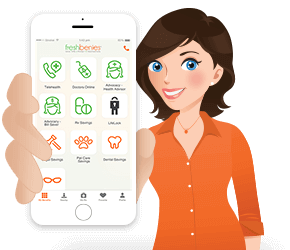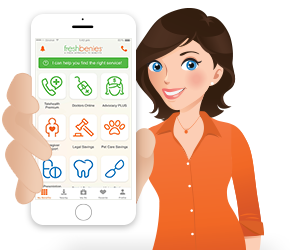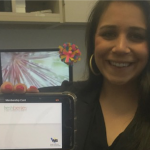Is Telehealth Safe? Top 7 FAQs
Have you sold a telehealth case and experienced the two user extremes? These are typical responses when an employee first hears of telehealth and how it works…
1) “Um, I don’t know about that – is it safe?”
2) “Sweet! I’m never going to the doctor’s office again!”
Much of this article deals with the safety questions that come up again and again (we’ve heard it all over 7 years), although FAQ #2 is the best testimonial we’ve ever had to prove that some issues require an in-person consult.
If you haven’t had sold a telehealth case yet, click here for a quick explanation of how it typically works.
Below are our seven most frequently asked telehealth safety questions…
1) Isn’t it illegal to get a prescription over the phone? My doctor always tells me I have to come in!
No. There are a variety of reasons a doctor wants to see the patient in person. Some might not feel comfortable prescribing over the phone based on symptoms and medical history. Some doctors don’t have systems in place to handle payment or reimbursement from insurance companies for a phone visit. As you know, doctors only get paid by an insurance company if the patient comes for an office visit.
2) Isn’t it just a prescription factory?
No. These are real physicians who know what appropriate care is – they follow the same strict guidelines via phone/video as they would during an office visit. In our experience, about 10% of visits are referred to an in-person doctor for care. To illustrate, I recently heard this story from a freshbenies member…
“…I called Teladoc because I thought I had the flu. I hurt all over and had a fever and as long as I have lived, I was sure I had the flu. The doctor spoke with me and would not treat me over the phone. I was a bit agitated, as I felt horrible and did not want to dress to go to the doctor. I decided to wait it out and a few days later, I almost passed out. I was taken to the hospital and found out I had sepsis and a heart rate of 280 due to the sepsis affecting my heart. They told me I had 12 hours to live if they didn't get this under control. I just want to say thank you to that doctor for not sending me Tamiflu or something that would have masked my symptoms and I might have died. Yes, I was irritated at the time, but now I am so thankful to him that he didn't treat me… This is a story of why your doctors know what they are doing and when not to provide treatment over the phone. …I just wanted to give this comment for people who don't get treatment so they will know the doctors are trained and know when someone should go to a physical location and when it is safe to treat a patient over the phone. Again, thanks to that doctor as he probably saved my life.”
3) Are these telehealth doctors in another country?
No. In the United States, only doctors who are licensed in the patient’s state can prescribe medications. freshbenies works with Teladoc who uses doctors who live and work in the U.S., are board-certified, and are licensed in the patient’s state.
4) Who are the doctors?
They’re general practitioners, pediatricians, internists, and family medicine physicians who might live and practice in the patient’s very own city. These physicians incorporate telehealth into their practice because they see it as a way to give more affordable, more convenient access to quality care. And, many love being a "call a doctor" because it allows them to take time to talk with patients about their concerns vs. rushing from room to room of waiting, paper gown-clad patients. If you work with a telehealth vendor other than freshbenies, be sure to ask them about their recruiting and training policy.
5) Are the doctors just “kids” straight out of med school?
No. Teladoc requires their doctors to have multiple years of practice experience. They also have specialized training in talking with patients and diagnosing over the phone and with online video, while adhering to strict clinical protocols.
6) How do the doctors know the patient’s medical history?
Using telehealth is similar to an urgent care center. In most cases, patients have probably never met the doctor before they’re treated. So, they complete the medical history forms required before a visit (the dreaded “clip board”). Telehealth works the same way. Before consulting with a doctor, patients provide their medical history electronically - including the prescriptions they’re taking and current symptoms. The nice part with telehealth in comparison is that once you’ve entered in your history, you only need to update it with changes.
7) How can they diagnose over the phone without touching/feeling/seeing me?
We all have the same human parts and they tend to break down in the same ways over and over again. This is why it’s estimated that up to 70% of medical issues can be handled over the phone. They’re handling the simple, common medical issues such as colds, flu, poison ivy, respiratory infections, bronchitis, pink eye, sinus problems, allergies, urinary tract infections and ear infections. Doctors are smart, so with a few good questions, many ailments are somewhat easily diagnosed via phone versus in-person. For instance, when we called for a rash on my husband’s leg, they asked: Are the bumps red or white? …raised or flat? Is the rash area warm to the touch? ...and so on! At that point, the doctor felt she had enough information to diagnose it as Poison Ivy and call in a prescription. And presto, rash eliminated!
Have you heard other questions from your clients? Have you had a good or bad experience with telehealth? Comment below or email me at heidi@freshbenies.com!















